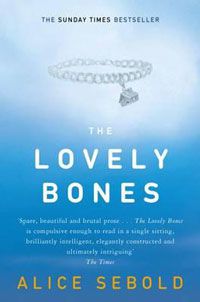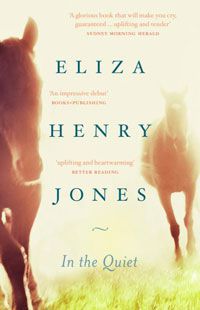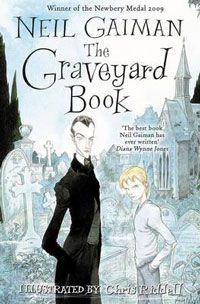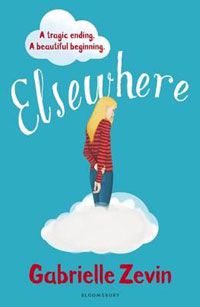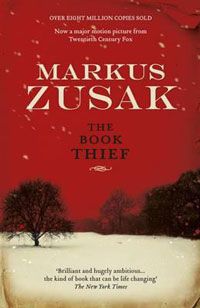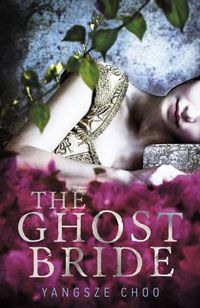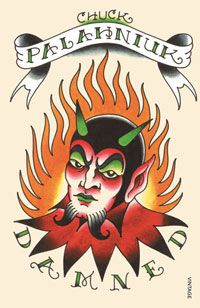Whether you believe in ghosts or not, these otherworldly narrators offer a fascinating take on the world of the living.
The Lovely Bones by Alice Sebold
Alice Sebold’s bestselling novel tends to be the one that comes first to mind when people think about books narrated from the afterlife. Suzie Salmon was murdered by her creepy neighbour at the age of 14, and she watches from heaven as her family comes to term with her unsolved disappearance. The Lovely Bones is as much about the long-term impact of loss as it is about identity, grief and forgiveness.
Lincoln in the Bardo by George Saunders
The first novel from the critically acclaimed writer George Saunders takes place over one night in 1862 during the early days of the Civil War. The title refers to the Tibetan word bardo – the transitional state between death and rebirth, and reimagined in Saunders’ novel as a kind of purgatory. The night that Abraham Lincoln’s 11-year-old son Willie is interred the president return several times to the crypt to mourn, but the ghosts who are present know that the strength of the bond between father and son may leave the spirit of the child trapped forever.
In the Quiet by Eliza Henry-Jones
Eliza Henry-Jones’ debut novel is an examination of family bereavement, but is told from the intensely personal view of the woman who has died. In the months that have passed after her death, Cath observes her husband and three children deal with the heartache of letting her go. Our reviewer says that In the Quiet is ‘a gentle story that doesn’t shy away from the gritty, difficult parts of grief and growing up’.
The Graveyard Book by Neil Gaiman and Chris Riddell
Neil Gaiman’s take on Rudyard Kipling’s classic, The Jungle Book, is set in a graveyard, with its resident ghosts playing the role of in loco parentis to the orphan Nobody (or Bod) Owens. While the ghosts are not necessarily the ones at the heart of this story, they’re the ones that teach Bod his most important lesson – that because he is alive, he has infinite potential; he can ‘do anything, make anything, dream anything’.
Elsewhere by Gabrielle Zevin
Elsewhere’s protagonist, Liz, is killed in a hit and run accident at the age of 16. This means she misses out on everything she’d been looking forward to: graduating, getting her driver’s license, falling in love, and fulfilling her dream of becoming a vet. In the afterlife she’s frustrated to discover that everyone ages backwards, meaning that even now she’ll simply be repeating the ‘boring’ parts of life rather than experiencing new and exciting things. Elsewhere encourages readers to understand that life is the journey, not the destination, and that it’s never too late (or too soon) to start enjoying the moment.
The Book Thief by Markus Zusak
This remarkable WWII novel tells the life story of Liesel Meminger. At the age of 10, her parents are incarcerated in a concentration camp and she is sent to live with a foster family. Narrated by the figure of Death, this story examines the choices that we make in life, and the effect that they have in the greater scheme of things. In an interview with NPR’s John Ydstie, author Marcus Zuzak explained how he came to see Death as a narrator: ‘…Death is weary, he’s fatigued, and he’s haunted by what he sees humans do to each other because he’s on hand for all of our great miseries.’
The Ghost Bride by Yangsze Choo
This historical novel is set in colonial Malaysia where Li Lan, the daughter of a bankrupt businessman, finds herself forced into an unwelcome ‘ghost marriage’ with the odious (and deceased) son of a powerful family. To fight the marriage she must leave her earthly body behind and travel into the Chinese underworld. This wonderful story is full of Chinese mythology, funeral traditions, and superstitions.
Damned by Chuck Palahniuk
Fight Club author Chuck Palahnuik describes his trippy novel Damned as: ‘If The Shawshank Redemption had a baby with The Lovely Bones and it was raised by Judy Blume.’ Maddy Spencer wakes up in Hell, and finds her place in a mismatched group of fellow citizens: a rocker, a nerd, a prom queen, and a jock. If this sounds familiar, it should – the group is loosely modelled on The Breakfast Club. Maddy makes a name for herself recruiting souls via a telemarketing campaign, but in actuality she’s trying to uncover the truth of her death, and why exactly she ended up in Hell in the first place.


